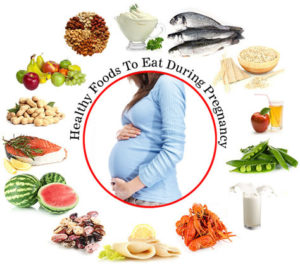Congratulations on your pregnancy! This is a beautiful time filled with excitement, anticipation, and maybe a few digestive hurdles. As your body works hard to nourish your growing baby, digestion can sometimes take a backseat. But fear not, mama-to-be! By incorporating some key foods into your diet, you can keep things moving smoothly and avoid uncomfortable constipation, gas, and heartburn.

Why Digestion Matters During Pregnancy
During pregnancy, your amazing body undergoes several changes to accommodate your little miracle. One of these changes is an increase in the production of progesterone, a hormone that relaxes muscles throughout your body, including those in your digestive system. This relaxation can slow down the movement of food through your gut, leading to constipation.
Additionally, your growing uterus puts pressure on your intestines, further impacting digestion.
Here’s why good digestion is important during pregnancy:
- Nutrient Absorption: Proper digestion ensures your body absorbs essential vitamins, minerals, and other nutrients from your food to nourish both you and your baby.
- Reduces Discomfort: Constipation, gas, and heartburn can be very uncomfortable and disrupt your daily life.
- Improves Overall Health: Good digestion contributes to a healthy immune system, which is crucial for both you and your developing baby.
Top Foods for a Smooth Pregnancy Digestion
Now that we understand the importance of digestion during pregnancy, let’s explore some fantastic food options that can help keep things moving:
1. Water: Your Body’s Best Friend
Water is vital for everyone, but especially during pregnancy. Increased blood volume and waste elimination put a strain on your body’s water needs. Aim for at least eight glasses of water daily. Dehydration can worsen constipation, so listen to your body and drink even more if you feel thirsty.
2. Fiber Power: Nature’s Laxative
Fiber is a champion for healthy digestion. It bulks up stool, making it easier to pass and preventing constipation. Here are some fiber-rich superstars to incorporate into your diet:
- Fruits: Berries, pears, apples with skin, kiwis, and prunes are all excellent sources of fiber.
- Vegetables: Aim for a rainbow! Broccoli, Brussels sprouts, dark leafy greens (spinach, kale), and sweet potatoes are all high in fiber.
- Whole grains: Opt for whole-wheat bread, brown rice, quinoa, and oatmeal instead of refined grains.
- Beans and lentils: These protein powerhouses are also packed with fiber. Try adding them to soups, salads, or casseroles.
3. Probiotic Powerhouses: Boosting Good Gut Bacteria
Probiotics are the good guys in your gut. They help maintain a healthy balance of bacteria, which can aid digestion and reduce uncomfortable bloating and gas. Here are some probiotic-rich foods to include in your diet:
- Yogurt with live and active cultures: Look for yogurt with at least 2-3 billion CFUs (colony forming units) per serving.
- Kefir: This fermented milk drink is a great source of probiotics and calcium.
- Kimchi: This spicy Korean fermented cabbage is not for everyone, but if you enjoy it, it’s a good source of probiotics.
- Sauerkraut: Similar to kimchi, sauerkraut is fermented cabbage and another good source of probiotics.
4. Ginger: Nature’s Tummy Tamer
Ginger is a natural remedy for nausea and can also help with digestion. It has anti-inflammatory properties that can soothe an upset stomach and may help relieve heartburn. Here are some ways to incorporate ginger into your diet:
- Ginger tea: Steep fresh ginger root in hot water for a calming and nausea-relieving drink.
- Grated ginger: Add a little grated ginger to stir-fries, soups, or smoothies.
- Ginger candies: Suck on ginger candies for a quick burst of nausea relief.
5. Papaya: A Digestive Enzyme Powerhouse
Papaya contains papain, an enzyme that helps break down protein. This can be especially helpful during pregnancy when your protein needs increase. Papaya is also a good source of fiber and vitamin C, which further supports healthy digestion.
6. Smoothies: A Delicious Way to Get Your Nutrients
Smoothies are a fantastic way to pack in a variety of fruits, vegetables, and other digestive-friendly ingredients. Experiment with different combinations to find your favorites. Here are some smoothie ideas to get you started:
- Green Goddess: Spinach, banana, pear, yogurt, and water.
- Berry Blast: Berries, yogurt, almond milk, and a sprinkle of chia seeds.
- Tropical Sunshine: Mango, pineapple, banana, coconut milk, and a squeeze of lime.
7. Smaller, More Frequent Meals:
Swapping three large meals for five or six smaller ones can be easier on your digestive system. This prevents overwhelming your stomach and allows for smoother digestion throughout the day.
8. Chew Thoroughly:
This may seem like a no-brainer, but taking the time to chew your food thoroughly helps break down food particles into smaller pieces, making digestion easier.
9. Manage Your Portions:
Pay attention to your body’s hunger cues and avoid overeating. A full stomach can put a strain on your digestive system and lead to discomfort.
10. Manage Stress:
Stress can wreak havoc on your entire body, including your digestion. Practice relaxation techniques such as yoga, meditation, or deep breathing to manage stress and support healthy digestion.
11. Exercise Regularly:
Regular physical activity can help keep your digestive system moving. Aim for at least 30 minutes of moderate-intensity exercise most days of the week.
12. Listen to Your Body:
Every pregnancy is unique, and your digestive needs may differ from others. Pay attention to how certain foods affect you and adjust your diet accordingly.
13. Prenatal Vitamins:
Some prenatal vitamins can cause constipation. Talk to your doctor if you suspect your prenatal is contributing to digestive issues. They may recommend a different brand or suggest taking it with food.
14. When to Call Your Doctor:
While some digestion issues are common during pregnancy, there are times when you should consult your doctor. Seek medical advice if you experience:
- Severe or persistent constipation
- Blood in your stool
- Vomiting that doesn’t subside
- Severe heartburn that doesn’t respond to lifestyle changes
Building a Balanced Pregnancy Diet for Smooth Digestion
Remember, a balanced diet is key! While these specific foods can be helpful, focus on incorporating them into an overall healthy pregnancy diet that includes a variety of fruits, vegetables, whole grains, lean protein sources, and healthy fats.
Here are some additional tips for building a balanced and digestion-friendly pregnancy diet:
- Limit processed foods, sugary drinks, and unhealthy fats. These foods offer little nutritional value and can contribute to digestive issues.
- Spice things up! Some spices like cumin, fennel, and cardamom can aid digestion. However, be mindful of spices that may cause heartburn, like chili peppers.
- Stay hydrated! As mentioned before, water is crucial for good digestion. Aim for eight glasses of water daily, and more if you’re feeling thirsty.
Remember, you are not alone! Many pregnant women experience digestive issues. By incorporating these tips and talking to your doctor, you can create a happy and healthy digestive journey throughout your pregnancy.
Congratulations again on your pregnancy! Enjoy this special time and embrace the journey of motherhood.
